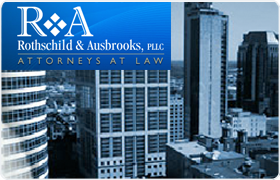 Nashville Bankruptcy & Debt Lawyers, Tennessee
Nashville Bankruptcy & Debt Lawyers, Tennessee
Sponsored Law Firm
-
 x
x

Click For More Info:
-
Rothschild & Ausbrooks, PLLC
1222 16th Ave. South, Suite 12 Nashville, TN 37212» view mapBankruptcy Filing, Chapter 7, Chapter 13 You Are Not Alone. We Can Help.
Our law firm encourages communication. We respond to calls and e-mails promptly. This is your case, and you will be involved every step of the way.
800-966-8531
Sponsored Lawyers
1-10 of 29 matches
Bankruptcy & Debt, Consumer Bankruptcy
For more than three decades, the bankruptcy attorneys at Rothschild & Ausbrooks, PLLC, in Nashville, Tennessee, have been devoted to helping individuals find relief from overwhelming debt. If you are facing significant financial challenges, you are not alone. Many people face debt due to job loss, medical bills, divorce and other unfortunate events. Sometimes, overspending can play a role, resulting in unpaid credit card bills and overextended mortgages. Whatever your reason for considering bankruptcy, Rothschild & Ausbrooks, PLLC, can help. We will provide the experienced guidance on bankruptcy and debt relief that you need to regain control of your financial situation. We understand that you are worried about the future and are probably skeptical about how bankruptcy can help you find a stronger financial footing. We will take the time to explore all of your options with you and explain all of the potential effects of bankruptcy so that you can be confident in whatever decision you make. Partners Edgar Rothschild and Mary Beth Ausbrooks are board-certified specialists in bankruptcy law with extensive experience devoted specifically to helping people overcome debt. This experience ensures that you receive thorough and knowledgeable representation in a complex area of law. Our law firm encourages communication. We respond to calls and e-mails promptly. This is your case, and you will be involved every step of the way.
(more)



 Mary Ausbrooks Nashville, TN
Mary Ausbrooks Nashville, TN Contact UsCall or Email
Contact UsCall or Email LinkedIn
LinkedIn

